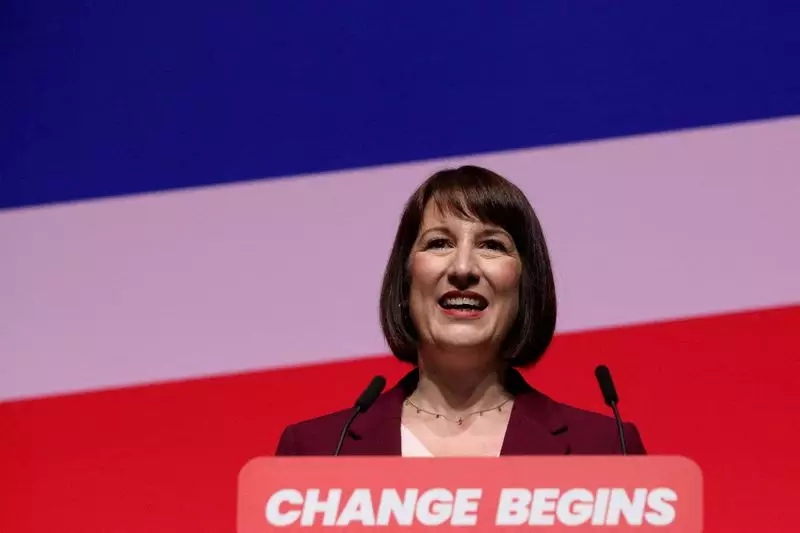In a significant move, Rachel Reeves, the UK’s finance minister, is poised to present a budget aimed at reframing the country’s economic framework as she engages with global leaders during her visit to Washington. The Labour Party is stepping onto the economic stage again with its first budget after being out of power for 14 years. As Reeves prepares for the International Monetary Fund (IMF) and World Bank annual meetings, her tenure as finance minister is under intense scrutiny as expectations for impactful economic reforms rise.
Reeves’ announcement signals not just a routine budget presentation but a fundamental strategy for reviving the UK economy, which has been grappling with numerous challenges. The urgency stems from a pressing need to fill a significant budget shortfall, estimated at about £40 billion ($52 billion). This gap, which has largely resulted from decisions made in previous administrations, necessitates decisive action, including a combination of tax increases and restrained public spending.
Investment appears to be the linchpin of Reeves’ approach. She asserts that her forthcoming budget will be a resetting force for the economy, intending to lay a robust foundation for sustainable growth. According to Reeves, this investment will enable the UK to advocate for its interests on the global stage, particularly addressing urgent international concerns such as conflicts in the Middle East and the ongoing situation in Ukraine.
Among the proposals being discussed is the government’s recent financial commitment to Ukraine, wherein it pledged $3 billion to support its defense efforts alongside other G7 nations. Such measures are indicative of Britain’s willingness to play a proactive role in global affairs, but they also reflect the interconnection of domestic fiscal strategies with international security issues.
A notable aspect of Reeves’ strategy is her intention to revisit the fiscal rules that govern government borrowing. The existing constraints have drawn criticism for being overly rigid, potentially hampering innovative public investment. Discussions around adjusting these rules indicate a paradigm shift, moving towards a more flexible definition of public debt. By proposing to include public sector net financial liabilities in the borrowing calculations, the Labour Party seeks to create additional fiscal space.
This approach has been met with optimism by some economic analysts, suggesting that it could facilitate an additional borrowing capacity of approximately £50 billion. Such a maneuver may ultimately serve as a stimulus for public investment, which the IMF has underscored as crucial for the UK’s economic revival.
The economic climate that Reeves operates in is one of cautious optimism. Recent reports from the IMF have highlighted an upward revision in the UK’s growth forecast for 2024, albeit modestly at 1.1%. This improvement, though it sets Britain apart from other G7 nations, still remains below historical averages, pointing to systemic issues that need addressing. The recommendation from the IMF for advanced economies – including the UK – to curb rising public debt reinforces the precarious balance that Reeves must navigate as she formulates her budget.
Additionally, Reeves’ commitment to promoting development financing for poorer nations illustrates a dual focus on domestic revitalization and global responsibility. By encouraging wealthier countries to be transparent about their debt obligations and contribute toward achieving the United Nations’ Sustainable Development Goals, the Labour Party positions itself as a champion of both economic growth and ethical governance.
As Rachel Reeves prepares to unveil her budget in the coming days, the pressures and expectations surrounding her initiative are palpable. The aim is to reinvigorate the UK economy through strategic investments and thoughtful fiscal adjustments, with an eye toward long-term sustainability. However, she must carefully balance growth initiatives with the responsibility of sound fiscal management.
Reeves’ outlook, framed within a context of global cooperation and accountability, suggests a comprehensive approach to reviving the UK economy that resonates beyond national borders. The upcoming budget not only represents an opportunity for revitalizing public services but also marks a critical juncture in the Labour Party’s journey toward redefining its economic narrative for the future.

